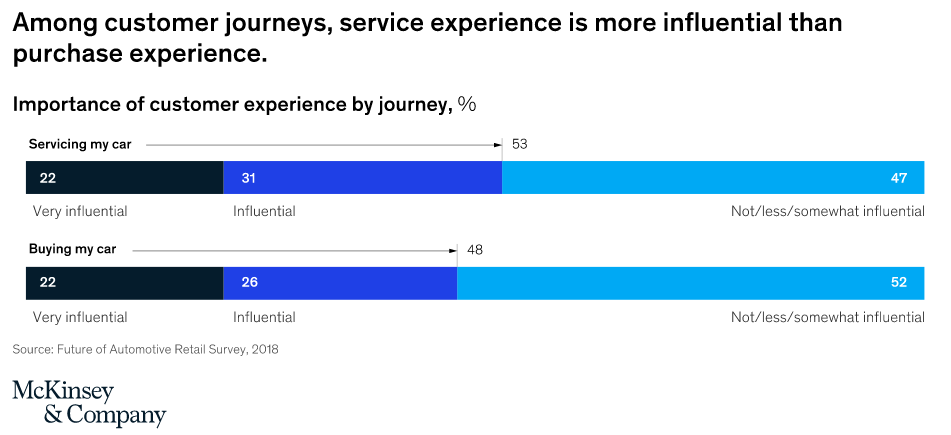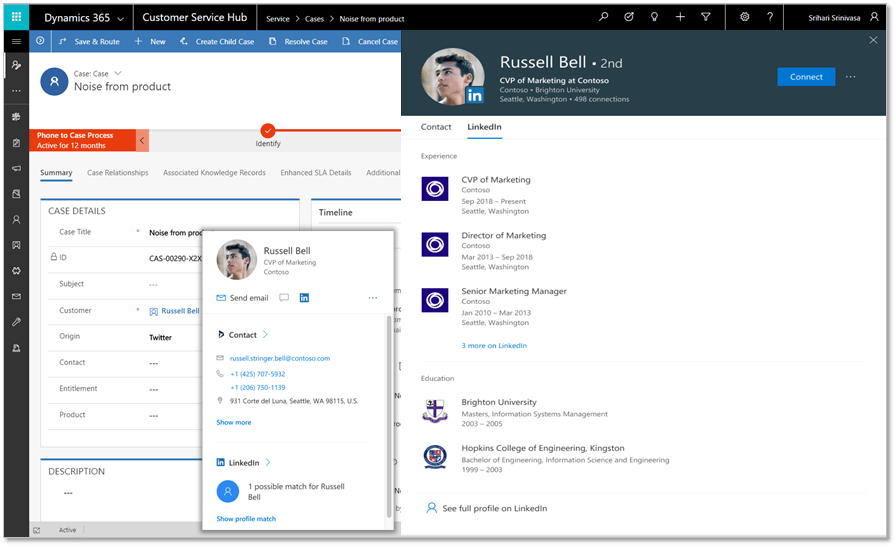The automotive industry is going through a transition – consumers have more reasons than ever to forego car ownership due to shared mobility and the increasing popularity of ride-sharing apps. While autonomous vehicles, connectivity, electrification, and shared mobility (ACES) will open new economic opportunities in the automobile industry, legacy car dealers will find it increasingly difficult to sell cars in the coming years.
According to a research report by Accenture, the market for privately owned cars is expected to shrink dramatically. By 2030, revenues from manufacturing and selling vehicles will be only marginally higher than what they are today, and that profits from car sales will even shrink slightly (from €126 billion to €122 billion). The rate of car ownership is expected to go down because of 2 main reasons:
- Rise in popularity of ride-sharing apps and shared mobility
- Shift in view of car ownership amongst Millennials
This shift in consumer behavior is not just changing how cars are used—but also how they’re insured. As private ownership declines, the automotive insurance sector is also undergoing a transformation. With fewer people buying cars, traditional insurance models are becoming outdated. More flexible, usage-based policies are gaining traction, especially among the younger generation who prefer paying only for the miles they drive. In this new era, drivers are more selective and price-conscious, often comparing coverage through tools that provide transparent quotes from SimplyQuote and similar platforms. For automakers and insurers alike, the future lies in adapting to this changing landscape—where protection matters just as much, even if ownership doesn’t.
While the rise of flexible insurance models highlights how mobility is evolving for modern drivers, there’s another side of the automotive world that remains grounded in tradition and emotion. Classic cars are not just vehicles; they are cultural touchstones that remind us of a time when design, craftsmanship, and individuality defined the driving experience. Unlike the pay-per-mile policies shaping the future, owning a vintage model is often less about utility and more about passion, preservation, and pride.
The relationship between owner and car extends far beyond coverage or convenience, rooted instead in the stories behind the wheel and the joy of maintaining something rare and timeless. This sense of connection is why enthusiasts often see classic vehicles as more than just machines, but as living testaments to a golden age of motoring where every curve and engine note told its own story. For collectors and dreamers alike, the pursuit of rare finds keeps that spirit alive, and the availability of muscle cars for sale makes it possible to own a piece of that history, ensuring the bond between driver and automobile continues for generations to come.
Each listing represents a potential chapter in the legacy of automotive history, from meticulously restored muscle cars to elegant cruisers that still capture the imagination decades after they first hit the road. Investing in these vehicles is as much about safeguarding a piece of heritage as it is about enjoying the unmistakable thrill of driving something unique.
At the same time, the automotive industry itself is shifting gears—balancing innovation with sustainability and long-term performance. Electric vehicles, advanced driver-assistance systems, and connected car technologies are reshaping how manufacturers design and deliver their products. Yet, even as new trends dominate, the fundamentals remain unchanged: vehicles still require dependable power, durability, and ongoing care. This is where trusted partners such as Rush Diesel come into play, supporting the backbone of transportation by ensuring engines and systems continue to run smoothly. As the industry evolves, it’s this blend of forward-looking technology and reliable maintenance that will drive progress on the road ahead.
And while innovation pushes us toward the future, the practical side of ownership always circles back to repair and upkeep. No matter how advanced the vehicle, wear and tear is inevitable, and addressing it promptly is what keeps performance intact. Sometimes that means routine servicing, other times it means breaking out the right tools and leaning on experience to get the job done. Even the most modern garage still has a place for classics like the Blue Wrench, a reminder that hands-on care remains central to keeping machines alive. Because at the end of the day, progress isn’t just about what’s new—it’s about keeping what we have running strong for the journeys still ahead.
The growing disconnect between consumers and automotive companies
According to McKinsey, millennials will represent more than 45% of the potential car-buying cohort in 2025, making them the largest new-car-purchasing demographic. The growth of ride-sharing companies and the ease of service they offer has created a shift in view of car ownership among Millennials.
Thanks to consumer-tech companies like Amazon, Airbnb, Uber and Ola, consumers now expect a seamless customer experience. The time has come for companies in the automotive industry to adopt a similar model by keeping customers at the heart of their business. The car dealers/franchises should be able to provide an end-to-end customer experience from pre-sale to after sale support to stay competitive under these market conditions. To do this, companies should:
- Build authentic customer relationships
Dealers should be able to reclaim customer conversations, understand their preferences and adapt to their needs. - Deliver unforgettable customer service
Dealers should get ahead of their game and offer proactive support to consumers by anticipating what they need. Companies should also be able to provide personalized omnichannel communication and 24/7 support services.
A case for better customer service
The greatest disconnect between consumers and companies lies in after-sale support. Consumers spend just about 15 hours buying a new car as compared to about 50 hours having it serviced during the time of ownership. A survey by McKinsey states that customers considered the service experience more influential than the last buying experience when purchasing their next car. Delivering exceptional after-sales support and keeping the customer engaged is key to building customer loyalty and keep them from looking at other dealers.
Analyst firm IDC estimates that manufacturers who successfully use service-quality measures to enhance the customer experience will have 20% more aftermarket revenue than their peers.
Digitizing Operations and Customer Experience
Due to the size of operations and costs involved, car companies have not yet digitized their operations. There are also very few customer service solutions that are built specifically for the automotive industry.
Smartify 365, built on top of the robust Microsoft Dynamics 365 customer engagement platform, helps automotive companies to deliver exceptional customer service and increase operational efficiency. Using a customer service management system like Smartify 365 will help automotive companies to:
- Streamline customer service
Manage customer service requests efficiently through a structured approach for handling service request, ticket management and resolution tracking. - Build customer relationships
Exceed customer expectations by offering proactive and personalized support with the help of comprehensive customer views. - Get a unified view of business operations
Connect people, processes, and customer service data to make intelligent decisions supported by analytics and AI. - Drive operational efficiency through data-driven reporting
Get a bird’s eye view of all operations through intuitive dashboards which will help them improve efficiency and reduce costs.
The customer is now firmly in the driver’s seat. With the disruption of the automotive industry by ride-sharing apps and shared mobility services, consumers now view car ownership as less of a necessity. Automotive companies should let go of legacy sales and customer service models and offer consumer-tech like experiences to their customers to stay competitive under the new market conditions.
Get a Free Trial of Smartify 365
Contact one of our experts today to learn how you can implement Smartify 365 in your organization and find the perfect solution for your business. Write to us at info@sysfore.com or give us a call at +91 (80) 4110 5555 for a free consultation.







